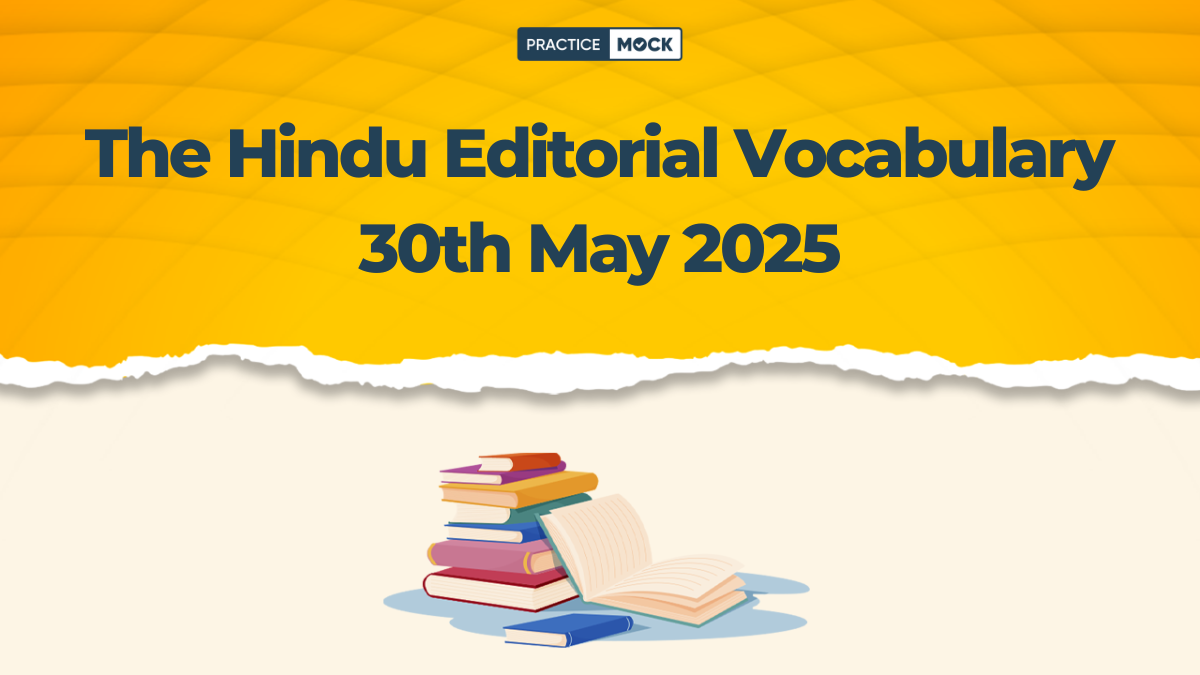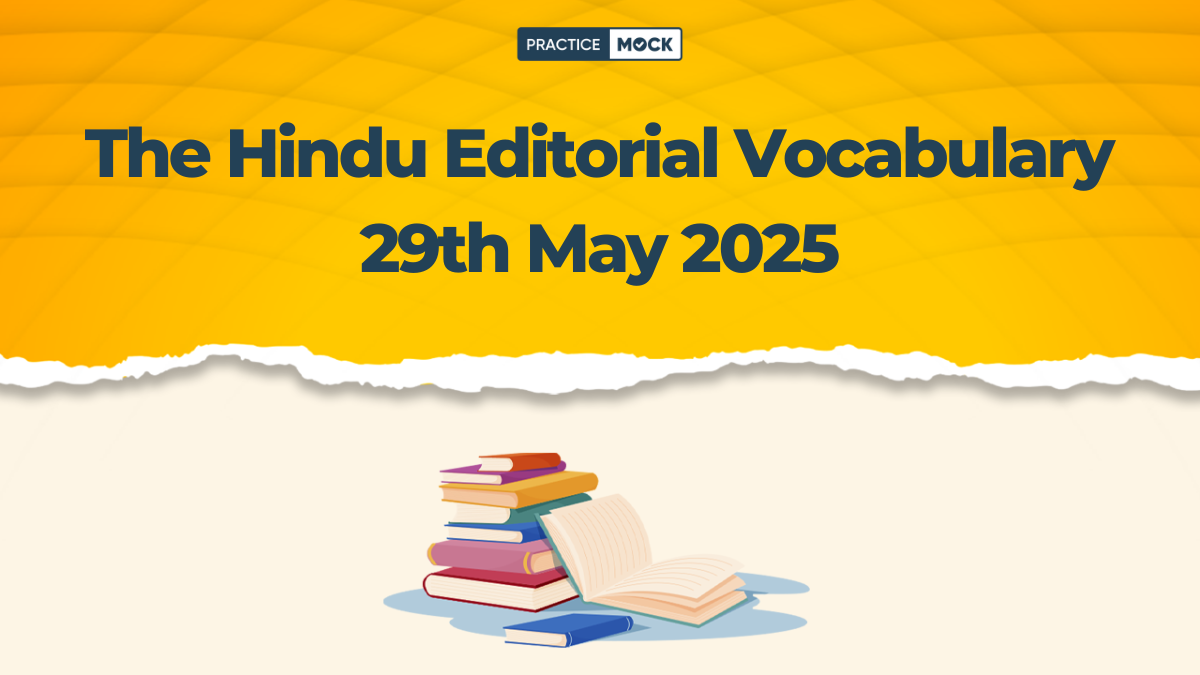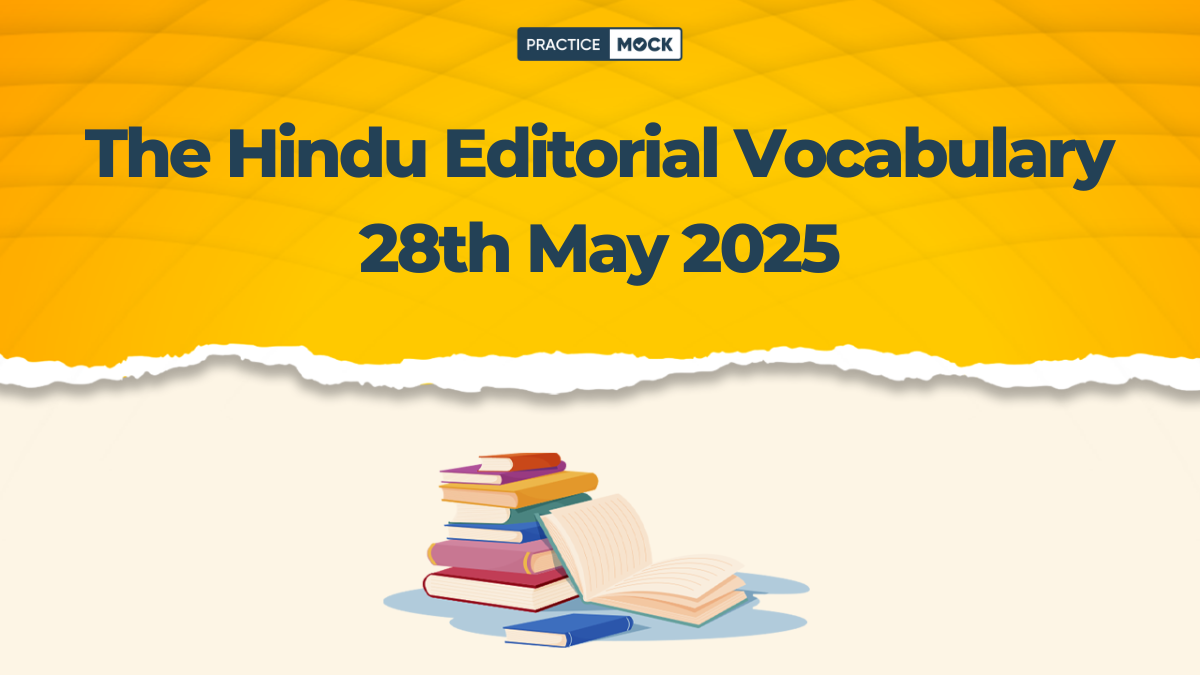

| Difficult Word/ Phrase | Contextual Sense |
| Strive | Attempt by employing effort |
| Non-partisan | not supporting the ideas of one particular political party or group of people strongly |
| Disconcerting | Causing an emotional disturbance |
| Ethnic | relating to a particular race of people |
| Strife | Lack of agreement or harmony |
| Exemplify | Clarify by giving an example of |
| Amorphous | Having no definite form or distinct shape |
| Mobilise | Make ready for action or use |
| Rage | Behave violently, as if in state of a great anger |
| Foothills | A relatively low hill on the lower slope of a mountain |
| Bring to a boil | To bring to a peak of activity or emotion |
| Semblance | a situation in which something seems to exist although this may not, in fact, be the case |
| Solidarity | support by one person or group of people for another because they share feelings, opinions, aims, etc. |
| Whip up | to deliberately try and make people excited or feel strongly about something |
| Frenzy | a state of great activity and strong emotion that is often violent or frightening and not under control |
| Trauma | An emotional wound or shock often having long-lasting effects |
| Cynical | believing that people only do things to help themselves rather than for good or honest reasons |
Limits of identity: On facilitating peace in Manipur
Civil society should strive (Attempt by employing effort) to be non-partisan (not supporting the ideas of one particular political party or group of people strongly) to aid peace in Manipur
One of the most disconcerting (Causing an emotional disturbance) features of the ongoing ethnic (relating to a particular race of people) strife (Lack of agreement or harmony) in Manipur remains the inability of civil society representatives to rise above their “ethnic” affiliations and work towards peace. This is exemplified (Clarify by giving an example of) by the acts of the Meira Paibi, an amorphous(Having no definite form or distinct shape) organisation of Meitei women, who have in the past mobilised (Make ready for action or use) against armed forces and police excesses, alcoholism, drug addiction and sexual violence in the State. During the conflict that has raged (Behave violently, as if in state of a great anger) on since early May, however, the Meira Paibi has been working towards disrupting the operations of the Assam Rifles in their attempt to maintain peace, especially in the foothills (A relatively low hill on the lower slope of a mountain). These areas, called “buffer zones”, were created to ensure that there is no further escalation of violence between arms-wielding people of the two ethnic communities, but there have been violent attacks with the armed forces unable to act on time because of disruptions, allegedly, by the Meira Paibi among others. Clearly, the situation has been brought to a boil (To bring to a peak of activity or emotion) by the looting of weapons by both Kuki-Zo and Meitei groups and their use in the strife. But the inability of the State government and its police and the Union government-deployed armed forces in maintaining peace has also been due to civil society groups supporting those engaging in violence.
Some Meira Paibi representatives had, in a press conference in New Delhi on Wednesday, claimed that they do not recognise the buffer zones, calling them “unconstitutional”. The presence of armed forces in peacekeeping is not an ideal solution in most circumstances. But with the ethnicisation of law enforcement, aided by a State government that seems to have lost its legitimacy of power across ethnic divides, leading to demands for a separate administration by Kuki-Zo representatives, the armed forces’ presence and the need for buffer zones to maintain a semblance (a situation in which something seems to exist although this may not, in fact, be the case) of peace have become essential in Manipur. Civil society groups such as the Meira Paibi can rise above their narrow ethnic identities to press for justice for women affected in the conflict and thus build solidarity (support by one person or group of people for another because they share feelings, opinions, aims, etc.) networks that will aid the process of reconciliation and peace-building. Sadly, that does not seem to be the case today. Civil society organisations have whipped up (to deliberately try and make people excited or feel strongly about something) the frenzy (a state of great activity and strong emotion that is often violent or frightening and not under control) of ethnic hatred, partially due to the recurring trauma (An emotional wound or shock often having long-lasting effects) from the violence, as much as cynical (believing that people only do things to help themselves rather than for good or honest reasons) political representatives have. And this has meant that the cycle of violence has endured. History suggests that a breakthrough can only be achieved through non-partisan leadership and civic dialogue among civil society and political representatives. As things stand, for that to happen there needs to be a credible alternative to the current leadership in the State.
Want to improve your vocabulary further? Download the Lists of Word-Meanings of Previous Months here.
Recent Posts
Best Mock Test Series for IBPS PO 2025, Get The Best Practice
Prepare smart for IBPS PO 2025 with the best mock test series. Get premium practice…
RBI Grade B 2025 Notification, Check Exam Dates & Latest Update
Get all the information you need about RBI Grade B 2025 Notification, including Exam Date,…
Daily Study Routine of an IBPS PO Aspirant
Looking for the best IBPS PO study schedule? Here’s a perfect daily routine with time…
IBPS PO 2025 Notification, Check Exam Calendar and When to Apply
The IBPS PO 2025 Notification is expected to be released in August 2025. The Probationary…
Is IBPS PO a Government Job?
Wondering if IBPS PO counts as a government job? Learn the similarities, differences, and why…
Puzzles for RRB Clerk 2025, Know Types and Ways to Solve Correctly
In this blog, we will explain why puzzles are important, the common types of puzzles…


